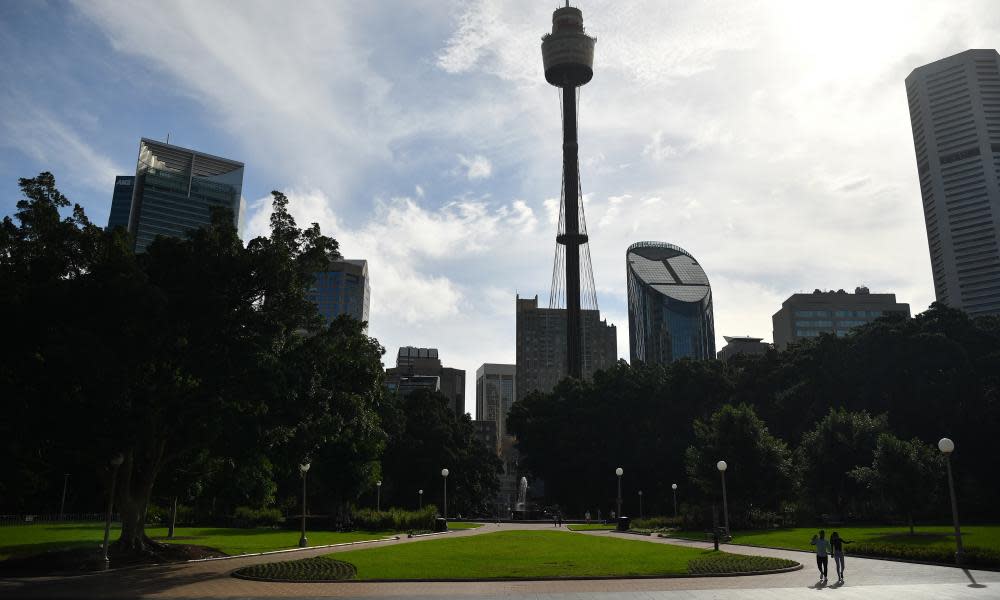Australia restricts public gatherings to two people among further coronavirus curbs

Scott Morrison says gatherings in Australia will now be restricted to two people, down from 10, and there will be a six-month moratorium on evictions for commercial and residential tenants in financial distress because of the economic shock associated with the coronavirus outbreak.
As the Morrison government continued work on Sunday night on the third economic stimulus package in as many weeks – which will include a wage guarantee allowing businesses to keep people on the payroll during a shutdown – the prime minister and the premiers signed off on regulatory measures to assist landlords and renters, while urging both parties to negotiate sensible commercial terms.
The national cabinet has also tightened social distancing measures in an effort to contain community transmissions of the virus. The prime minister told reporters on Sunday night members of the same household could still mingle together both inside and outside, but a limit of two would be set for all other interactions, and the limits would be enforced by authorities in New South Wales and Victoria.
Related: Australian government pumps $1bn into health and family violence services as coronavirus spreads
Underpinning the new limit on gatherings, public playgrounds, outside gyms and skateparks would be closed from Monday, and group boot camps are no longer permitted.
With the number of confirmed Covid-19 cases now heading towards 4,000, and 16 fatalities recorded, Morrison told reporters on Sunday night Australians now needed to stay home unless they were shopping for food and other essentials, attending medical appointments, exercising, or attending work or education.
He said the “strong advice” was also that people aged 70 and over “should stay at home and self-isolate for their own protection”. The same advice applied to people over 60 with a chronic illness, and Indigenous people over the age of 50.
Morrison said it was important for some retail outlets to remain open for now to allow people to gather essential items ahead of further social distancing restrictions, but he warned further closure of businesses was imminent. “As time goes on the national cabinet will continue to look at a lot of these businesses and may have to make further decisions in these areas, and in some cases that may not be too far from now.”
The prime minister said Australians needed to adjust their habits. “When you are going out for shopping, you should be going for just stuff you need and do it and get home.
“It is not a time for browsing. It is not a time for catching up with friends or bumping into people and having a long conversation and maybe drawing a few other friends across to catch up on how is it all going.
“No, you can’t do that anymore. That is what we have to stop doing.”
The chief medical officer, Brendan Murphy, said the goal of the tightened restrictions was to isolate confirmed cases and embark on contact tracing. He said the rate of new infections had slowed, but the positive trend was not enough to declare any breakthrough.
“We have to slow it further and we have to stop the thing that’s worrying us most, which is community transmissions.”
Sunday night’s announcements include a moratorium on evictions of people as a result of financial distress for the next six months under state laws.
Canberra continues to work on other elements of a rental relief package. Morrison said commercial landlords and tenants needed “to sit down, talk to each other and work this out”, and he said banks had a role to play.
“We need landlords and tenants to sit down and come up with arrangements that enable them to get through this crisis so on the other side, the landlord has a tenant, which is a business that can pay rent, and the business is a business that can re-emerge on the other side of this and be able to go on and employ people,” the prime minister said.
“We want the banks to help them achieve this outcome.”

 Yahoo News
Yahoo News 
